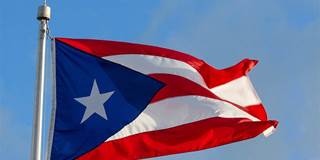Unlike Greece, Puerto Rico is not a country, which means that it is ineligible for multilateral financing; but nor is it a US state. This arrangement, though advantageous in some respects, also implies serious obstacles to the restoration of growth that the island so desperately needs.
WASHINGTON, DC – Puerto Rico ought to be the jewel of the Caribbean. It is not. Tourism has been stagnant for decades, even as travelers have flocked to other Caribbean destinations. European firms doing business in North and South America locate their corporate headquarters in Miami, Panama City, and elsewhere, with almost none choosing Puerto Rico. And now the island’s economy, after a decade of torpor, is declining at an accelerating rate as people leave for the US mainland. Public debt has soared, and the government says it cannot pay.
Unlike Greece, Puerto Rico is not a country (which means that it is not eligible for financing from the International Monetary Fund). Nor is it a US state. Yet it has features of both: Although it has its own constitution, it is a United States territory, Puerto Ricans are US citizens, and the island is subject to US federal law, except as otherwise stipulated.
The advantages of this hybrid status include the security and predictability of America’s rule of law, eligibility for federal transfer payments, and favorable tax treatment. Puerto Ricans who are not US government employees do not pay federal income tax, and the island’s bonds are “triple tax-exempt” (free of federal, state, and local taxes).

WASHINGTON, DC – Puerto Rico ought to be the jewel of the Caribbean. It is not. Tourism has been stagnant for decades, even as travelers have flocked to other Caribbean destinations. European firms doing business in North and South America locate their corporate headquarters in Miami, Panama City, and elsewhere, with almost none choosing Puerto Rico. And now the island’s economy, after a decade of torpor, is declining at an accelerating rate as people leave for the US mainland. Public debt has soared, and the government says it cannot pay.
Unlike Greece, Puerto Rico is not a country (which means that it is not eligible for financing from the International Monetary Fund). Nor is it a US state. Yet it has features of both: Although it has its own constitution, it is a United States territory, Puerto Ricans are US citizens, and the island is subject to US federal law, except as otherwise stipulated.
The advantages of this hybrid status include the security and predictability of America’s rule of law, eligibility for federal transfer payments, and favorable tax treatment. Puerto Ricans who are not US government employees do not pay federal income tax, and the island’s bonds are “triple tax-exempt” (free of federal, state, and local taxes).